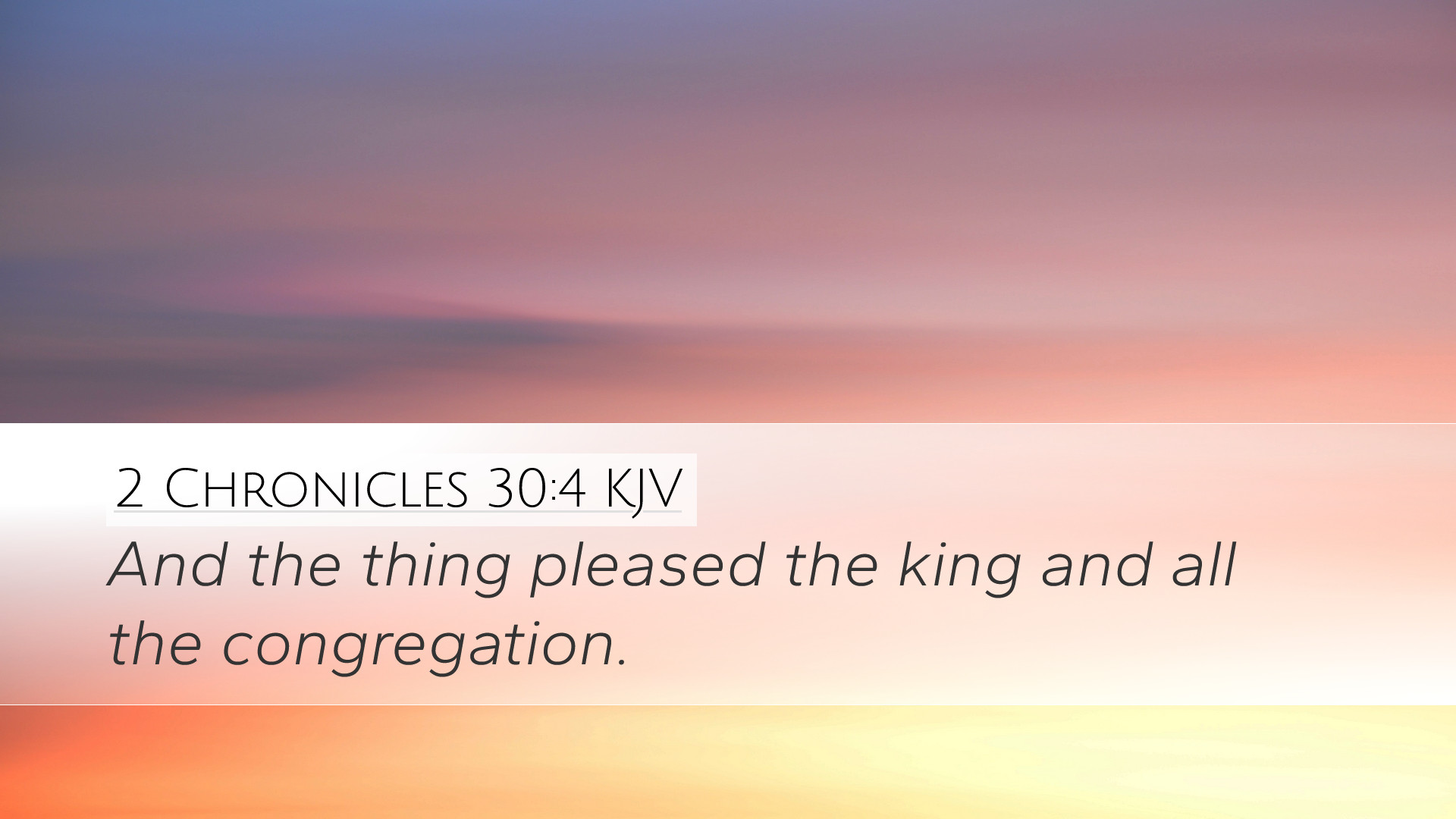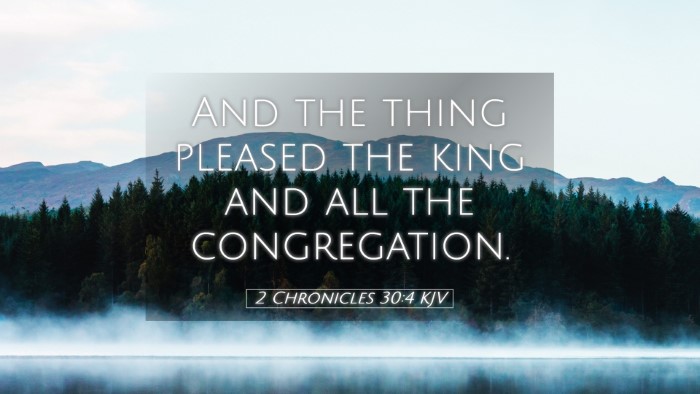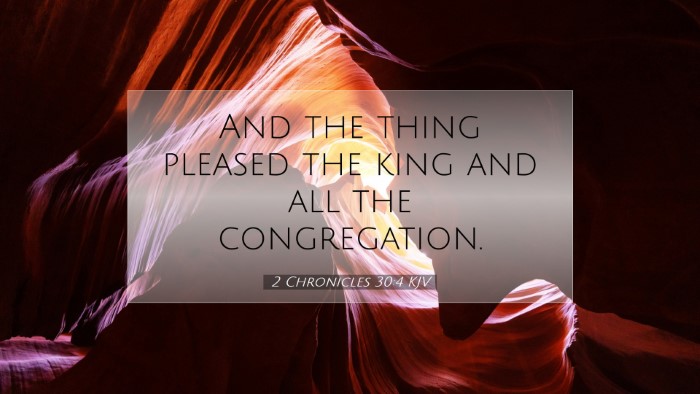Commentary on 2 Chronicles 30:4
2 Chronicles 30:4 states: "So they established a decree to make proclamation throughout all Israel, from Beer-sheba even to Dan, that they should come to keep the passover unto the LORD God of Israel at Jerusalem: for they had not done it of a long time in such sort as it was written."
Introduction
This verse represents a significant moment in the history of Israel, capturing a time of renewed dedication and obedience to the LORD. After a long period of neglect, Hezekiah’s proclamation reinstates the observance of the Passover, highlighting themes of repentance, unity, and divine worship.
Historical Context
The context of 2 Chronicles 30 is pivotal, occurring during King Hezekiah’s reign over Judah, a time marked by spiritual reform and national revival. After the apostasy of previous kings, Hezekiah sought to restore true worship among the people of Israel. His initiative to celebrate the Passover was a direct response to the command of God as articulated in the Law.
Hezekiah’s Role
Hezekiah’s decree wasn’t simply a political move; it was a heartfelt call to repentance and renewal. As stated by Matthew Henry, Hezekiah “calls upon all Israel to join in this great observance,” recognizing his responsibility not just for Judah but for all Israel. His leadership reflects a deep concern for the spiritual well-being of his people.
Insights from Commentaries
Divine Initiative and Human Response
Albert Barnes emphasizes the dual aspect of divine initiative and human response. The call to return to Jerusalem is seen as an invitation not only to participate in a national feast but to return to the foundation of their faith, which is central to their identity as God’s chosen people. This reflects the compassion of God who desires His people to come back to Him.
The Scope of the Proclamation
The range of the proclamation, “from Beer-sheba even to Dan,” illustrates the inclusiveness of Hezekiah's invitation. It encompassed the entire nation of Israel. Adam Clarke expounds on this point, indicating that the breadth of this call highlights God’s desire for all His people—regardless of their previous disobedience—to return and worship Him. This inclusivity reinforces the concept of God’s mercy and graciousness.
Observance of the Passover
The Passover itself is a significant element in the Jewish faith, representing deliverance and redemption from slavery in Egypt. The neglect of the Passover prior to this decree indicates a spiritual decline among the Israelites. The statement that they had not celebrated it “in such sort as it was written” suggests a long period of deviation from proper worship. Matthew Henry notes that “the neglect of this rite was a token of their alienation from God.”
Theological Implications
Repentance and Restoration
This verse reflects a profound theological truth: the necessity for repentance and the joy of restoration. Albert Barnes observes that participating in the Passover is fundamentally about recognizing God’s past acts of deliverance and affirming a commitment to covenant relationship. Each individual journeying to Jerusalem represents a step towards reconciliation with God.
Unity in Worship
Hezekiah’s decree served as a unifying force among the tribes of Israel. This revival was not just limited to Judah but aimed at restoring a fractured nation. According to Adam Clarke, “the reunion of God’s people in worship indicates the restoration of their covenant community.” This speaks volumes about the importance of unity in the body of Christ today.
Application for Today
In contemporary Christian life, the themes found in 2 Chronicles 30:4 resonate powerfully. There is a call to churches and communities to gather in worship, to re-evaluate their worship practices, and to seek unity among believers.
Call to Revival
-
Importance of Genuine Worship:
The neglect seen in this passage serves as a reminder for churches today to assess whether they are participating in genuine worship as God has prescribed.
-
Inclusivity in Community:
Just as Hezekiah’s proclamation included all Israel, modern leaders should strive for inclusiveness, reaching out to others in the faith community regardless of past divisions.
-
Focus on Redemption:
Emphasizing the redemptive work of Christ can draw people back to the intention of worship—celebrating God’s goodness and mercy.
Conclusion
The message of 2 Chronicles 30:4 resonates deeply within the framework of biblical theology. It encapsulates the need for renewal and reassessment of how we as individuals and as a church worship God. The call to keep Passover becomes not just a historical event but a continual reminder of the promises of God and His relentless pursuit of a relationship with His people.
Through the combined insights from historical accounts and theological interpretations, it is clear that this passage is not merely a recounting of an event in Israel’s history; it is an invitation for believers of all times to restore their hearts and lives in worship to the one true God.


